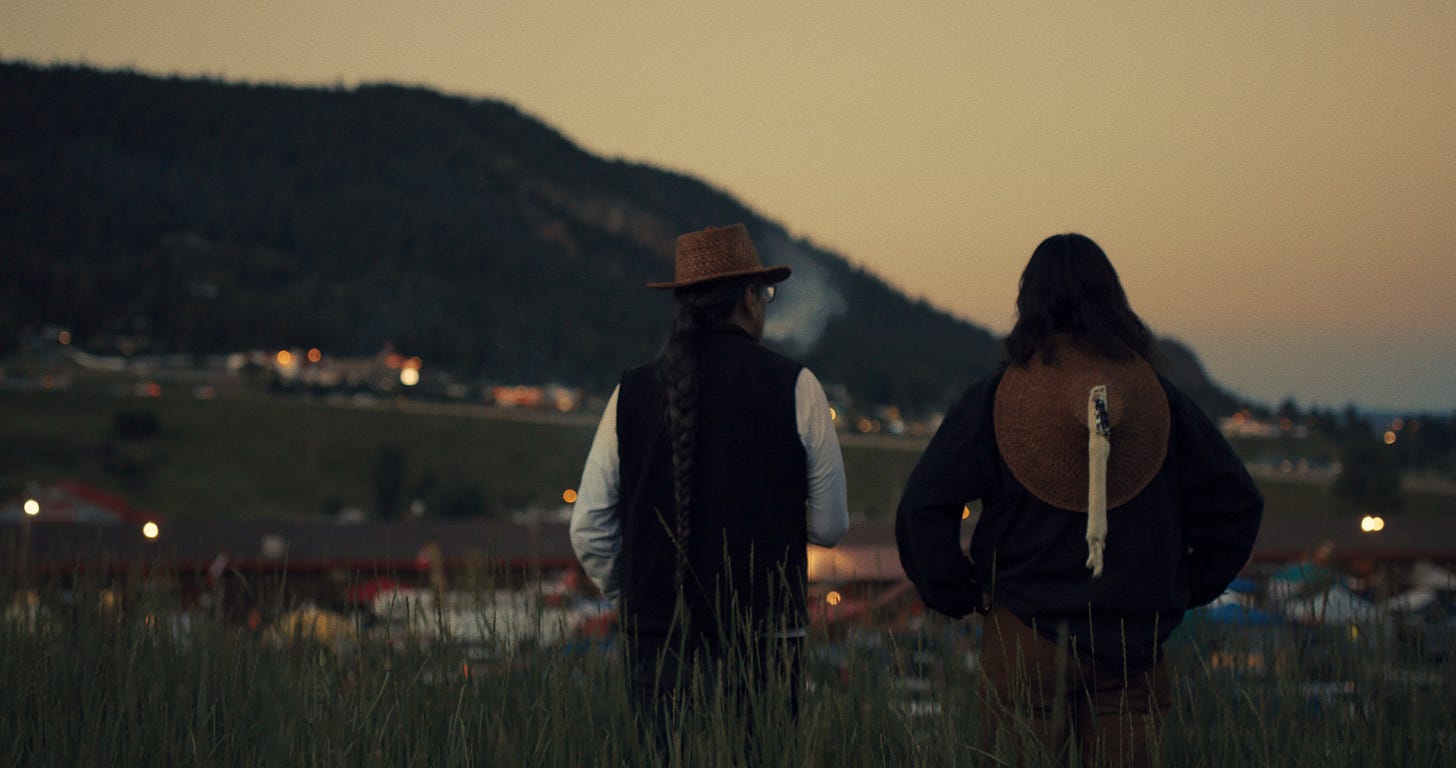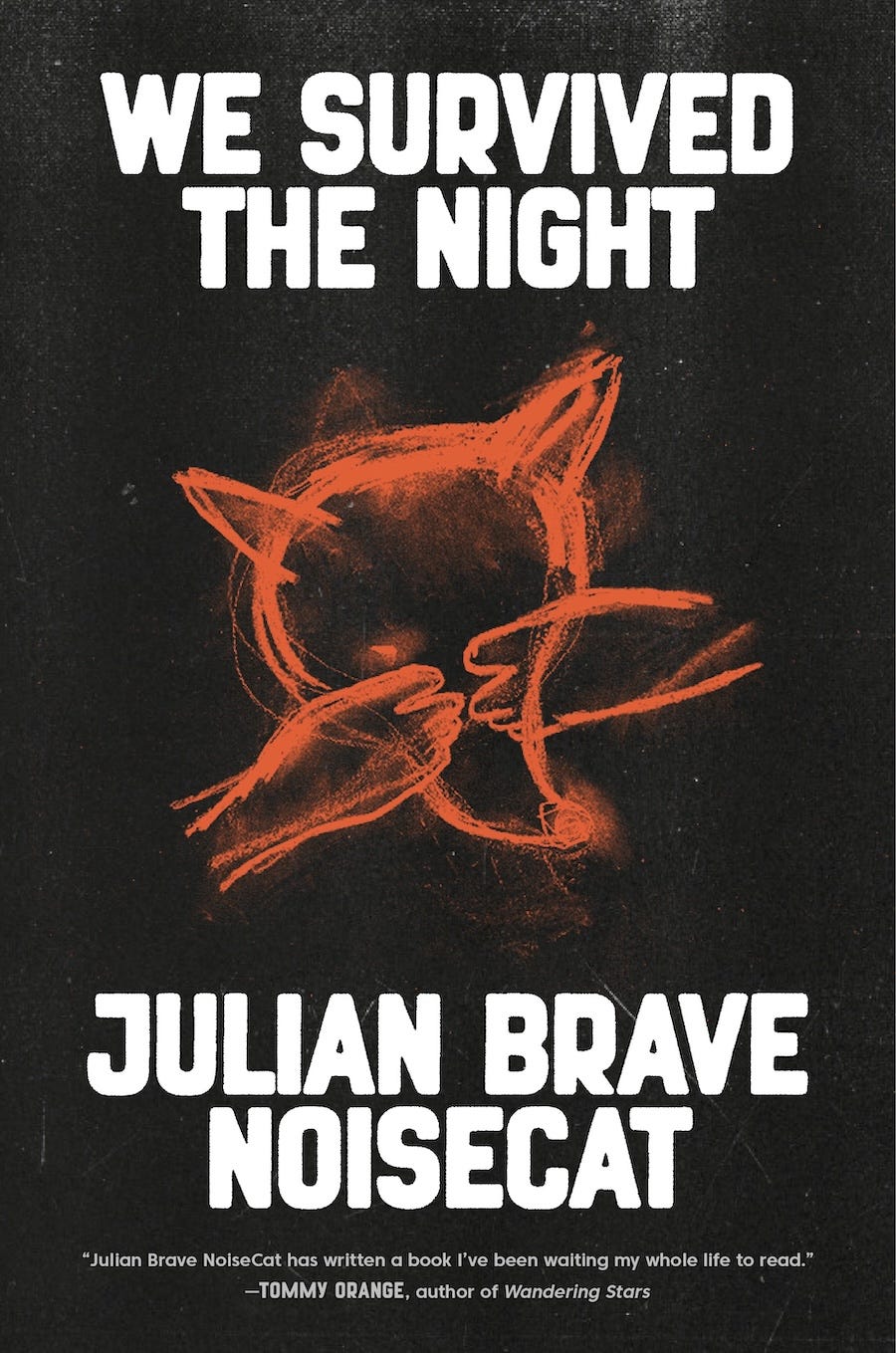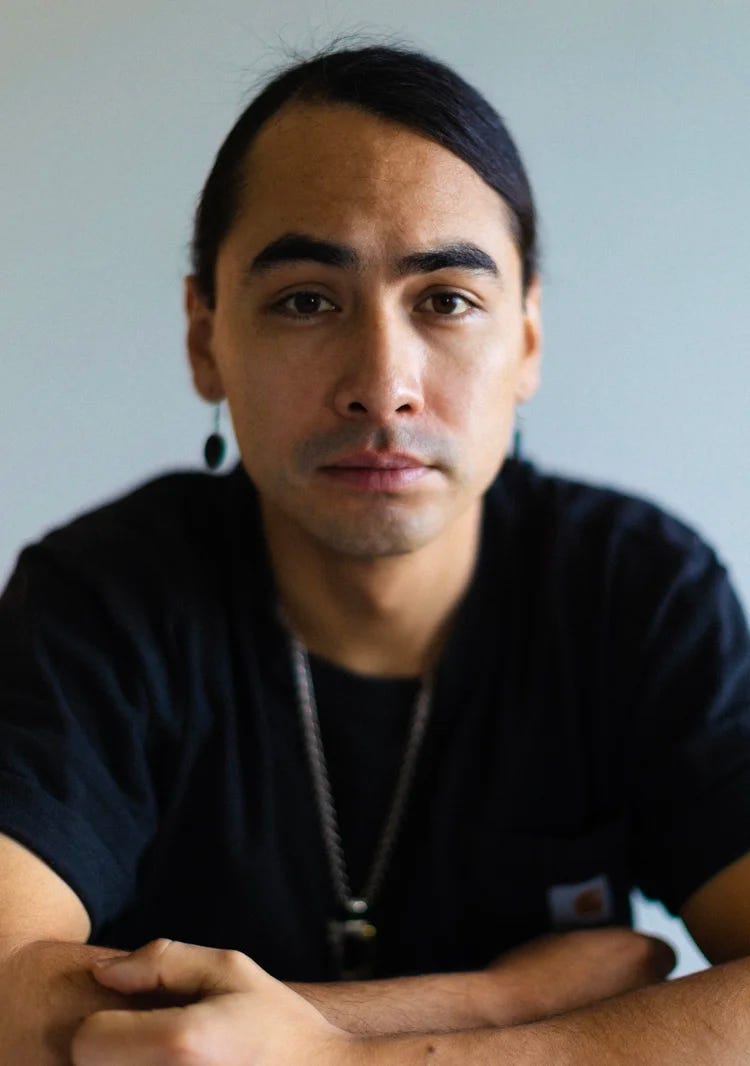BOOK CLUB: How much truth do you want to know?
This Wednesday, we'll talk about the risks and rewards of uncovering the past with "We Survived the Night" author Julian Brave NoiseCat
I just rewatched the acclaimed documentary Sugarcane in preparation for speaking with this month’s Ink Book Club guest, Julian Brave NoiseCat, author of We Survived the Night. NoiseCat has said that when his friend Emily Kassie initially approached him to co-direct the film with her, he was dubious. For one, he’d just signed a book contract but hadn’t yet figured out how to start writing it. There was also the fact that he’d never even made a TikTok before, let alone a full-length movie. His biggest concern, though, was that what they might uncover in the course of their research could reopen long-buried wounds.
NoiseCat also realized that in writing a book, he could keep his distance. “Writers don’t have to live our stories,” he observed in a recent Lit Hub essay. But if he were to collaborate on the film, he would be in the thick of it, side by side with survivors and family members as new revelations surfaced. “How much truth do I really want to know?” he asked himself. Ultimately, he decided it was crucial to bear witness.
When NoiseCat was growing up, his mother, Alex, made sure he spent time on the Canadian reservation where his father had been raised, so he would be exposed to the Secwepemc community’s traditions and culture, and most essentially, to his father’s family. But he’d been raised in Oakland, California, the son of a white woman. After graduating from high school, he attended Columbia University, won a fellowship to study at Oxford, and then went on to work on the Green New Deal as a climate activist, which brought him into the company of many movers and shakers. He yearned to get closer to his Indigenous roots, and work on the film would entail spending time back on the reservation, where many of his relatives still lived. Making the film — and getting to know the ways of his father’s people — unlocked something in NoiseCat. “I started to live a much more Indigenous life than I had before,” he observes.
NoiseCat and the rest of the Sugarcane film crew spent more than 100 days in and around Williams Lake and shot over one thousand hours of film there.
NoiseCat’s immersion in Indigenous life also led him to envision how We Survived the Night should be structured. He decided to draw on traditional Coyote narratives, in which the creation story is told through the exploits of the trickster figure and ancestor to NoiseCat’s people, interweaving myth, history, and memoir. The first chapter would be titled “In the Beginning,” and subsequent sections would be organized around Coyote’s four-day, four-night ceremonial fast, and also intentionally echo the Book of Genesis.
In reading the book and watching the documentary, we witness a father and son reuniting against all odds. There is a lot of tragedy, a lot of sadness, and many long-buried truths excavated. The First People of North America have been exposed to unspeakable and continuing exploitation and erasure. But in NoiseCat’s work, the lasting impact of Coyote’s trickster gene is evident. Or, as he has said of the film he co-created: “It’s really a reverse Western buddy stoner roadtrip tragicomedy.”
We Survived the Night immerses the reader, too, in the history, culture, and traditions of North America’s First People. The characters we’re introduced to in the course of NoiseCat’s journey begin to feel as familiar as our own friends and relatives. His book adds dimension, texture, and deeper context to our continent’s story, whether offering portraits of ways of life reclaimed after attempts to extinguish them, or providing a new perspective on narratives we thought we knew, as in the chapter, “Lost Colonists.”
Please join us this Wednesday, November 19, at 12:30 p.m. Eastern, when we will ask Julian Brave NoiseCat to share more with us on what he learned in the course of writing We Survived the Night and making Sugarcane, and how Indigenous people are preserving and protecting their land and traditions.
And below, for our Book Club members, we’ve got some questions of our own to get you thinking as you begin reading.
The Ink Book Club is open to all paid subscribers to The Ink. If you haven’t yet become part of our community, join today. And if you’re already a member, consider giving a gift or group subscription.





